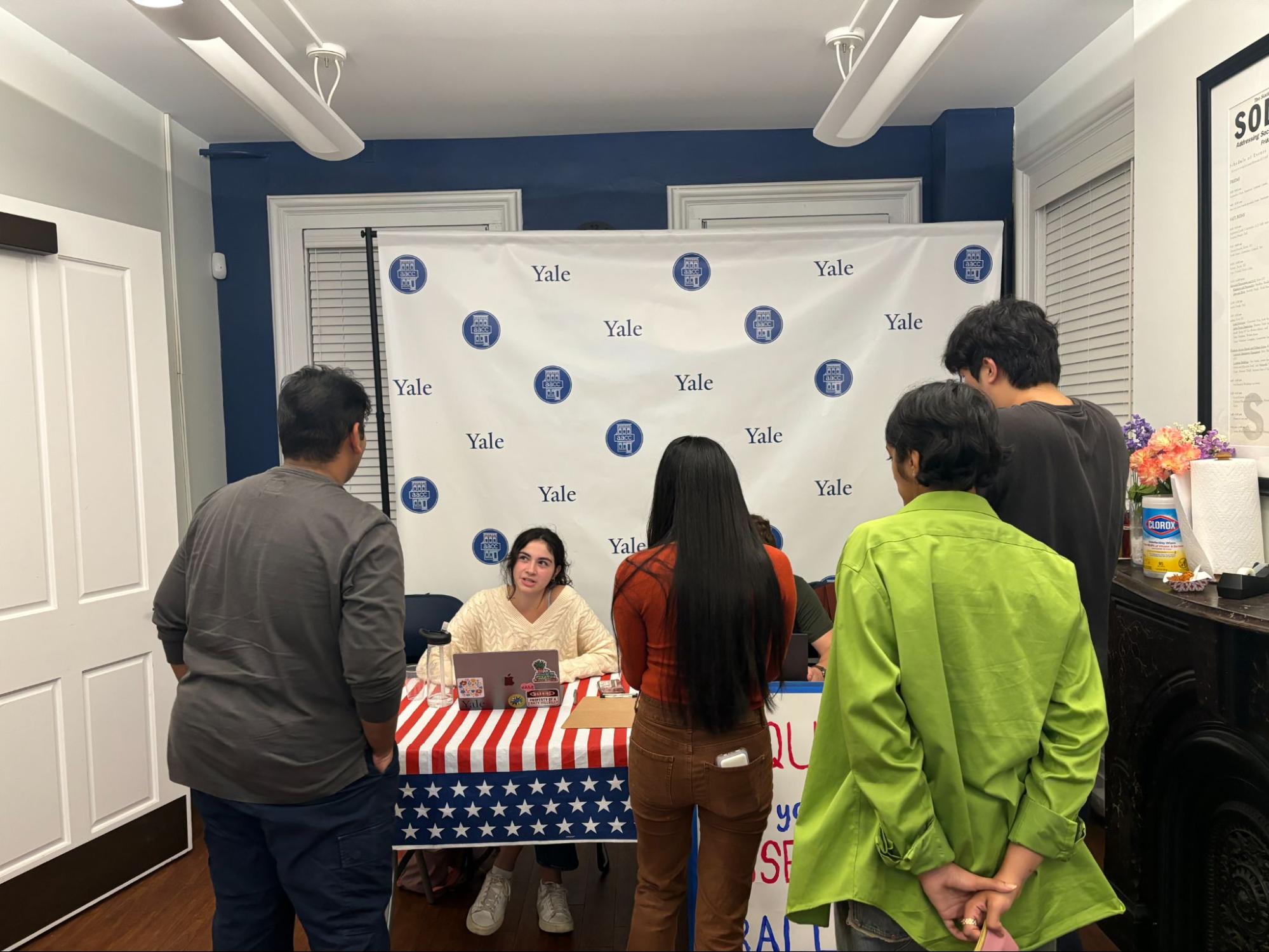AACC’s “The Asian Ballot” aims to mobilize and educate voters
In a push for civic engagement, Yale students emphasize the intersection of education and political action in empowering the AAPI community ahead of the elections.

Solomon Geleta, Contributing Photographer
Marissa Halagao ’27 believes that the AAPI vote is crucial in addressing community-specific issues and the issues that permeate other marginalized identities.
On Monday, Halagao, Andrew Lee ’27 and Kiswa Rahman SPH ’25 of the Asian American Cultural Center’s Political Action and Education team collaborated with Yale Votes to host an intimate event titled “The Asian Ballot” to mobilize AAPI voters and encourage them to register to vote.
The impending election season and the numerous misconceptions held by eligible voters inspired Halagao to organize this event.
“I think sometimes when we just tell people to go vote, we’re not getting those really important breakdowns of the topics that do affect voting itself,” she said. “And that really brings in the education pieces. I think it’s important that we pair political action with education. I think this event touches on Asian American identity but through a very pinpointed lens.”
The event began with a discussion about barriers and disparities standing in the way of Asian American representation when it pertains to voting and in particular what can be done to address these obstacles.
Surya Mohan ’28 cited “miseducation” as an issue he noticed impeding the way Asian Americans and Pacific Islanders exercise their right to vote.
“I feel like a lot of Asian Americans might not understand the influence their vote can have on their everyday lives,” Mohan said. “Within politics in general, we see a lot of apoliticism within the Asian American community. I think a great way to address that is events like these where you’re focusing on educating the community on the impact we can have.”
Other barriers that were brought up pertained to a lack of language justice in certain communities and the difficulties that arise when children born in immigrant households try to spark conversation about civic engagement.
“Our identity is underrepresented, and so are our demands for justice and calls for equity,” said Lee. “And so voting is just such a surefire way for us to have an input in the circumstances, political and social, around us.”
Lee pointed out the overlap between AAPI issues and their shared desires with “other minoritized peoples.”
He deemed equity on all fronts a “collective fight” and stated that solidarity should be at the forefront of all social efforts.
“We are not a monolith, so we’re going to inevitably have different perspectives and different ideas about what is right when it comes to voting,” he said. “But there is potential to alter political landscapes in really tangible manners, so the vote, our single vote, the collective vote, it matters.”
Later, the group explored how the model minority myth affects AAPI communities. According to the Political Action and Education team, the model minority myth postulates the idea that AAPI individuals are indifferent towards politics as a mechanism to maintain standing privilege in the American racial hierarchy.
Lee believes that this ideal weaponizes AAPI peoples against other minorities. He hopes that distancing from this ideal allows members of the AAPI community to reclaim their identity in the long run and provide them with more political and social liberties.
Concluding the event, Ajay Singireddy ’28 admitted that while, historically, some AAPI people have not participated civically, now more than ever, it’s important to make their voices heard in America.
“[This event] showed that we are here, and we are making our voices heard, and it destigmatizes the whole potential process, especially in Asian communities,” Singireddy said.
Halagao hopes that attendees left with an awareness and a recognition of the value of Asian Americans in society and politics.
The Asian American Cultural Center was established in 1981.







